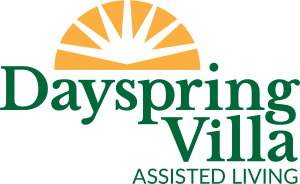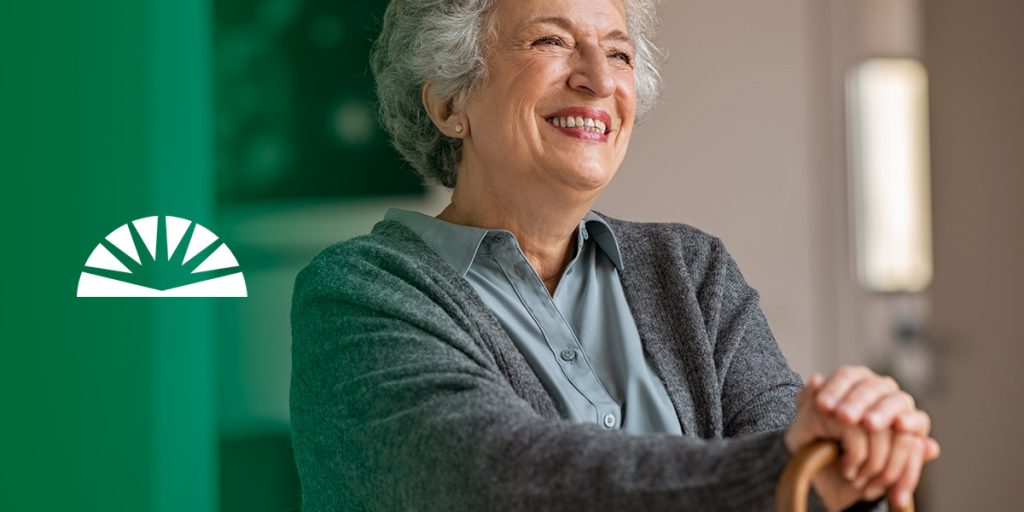At Dayspring Villa, we have a different approach in our attitudes toward older adults. Here’s a glimpse into the way we serve.
This originally appeared in the Cappella Living Solutions blog.
Understanding Ageism: The Last Acceptable Form of Prejudice
I cringe when I read stories like Paula Span’s recent article about the woman who was banned from bingo or Jennifer Weiner’s article on the “mean girls” who ostracized her Nanna, both written about in Elizabeth Newman’s blog last week. Are the people who run these retirement communities just unfeeling monsters with no concern for the well-being of residents? I don’t think so. I think they are just like me, and many others who manage retirement communities all across the country. We’re people trying to fight a battle against ageism, an underestimated but extremely powerful enemy. It’s a battle that’s extremely tough to fight.
We don’t always recognize ageism and we don’t fully understand its destructiveness. Many of us are operating under assumptions that prevent us from seeing opportunities for change. As Sally Kempton said, “it is hard to fight an enemy who has outposts in your head.”
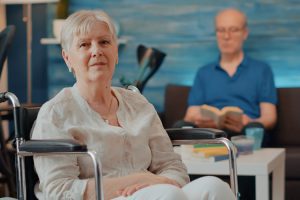
Dayspring Villa assisted living in Denver, CO
Ageism is the last acceptable form of prejudice in our society. And while one might think that a retirement community would be a safe haven, prejudice and discrimination can actually be much worse in these settings. Researcher Todd D. Nelson defined ageism as “prejudice against our feared future self.” That definition makes a lot of sense when you see people living in a retirement community shunning those who have higher care needs or cognitive challenges.
How Ageism Manifests in Senior Living Communities
Like the ladies described in the Span’s article who started a member’s only bingo game to avoid being with a woman from the nursing unit, fear brings out the worst in people. “If I avoid these people,” they seem to be saying, “I can avoid becoming like them.”
Challenging Traditional Assumptions in Assisted Living
Like most of us, I was taught certain “truths” from the moment I began my career in senior living services. Things like: Independent living residents don’t want to be around “sick, old people;” that when people need more care they must move to a separate area of the campus and leave behind their old life; and that people with dementia must live in an area separate from others. I’m ashamed to admit it but I really didn’t question these assumptions until I was given a unique opportunity to lead a retirement community through a complete redevelopment.
The plans called for a new design — a design that would create one community where people from all areas of living could come together and share life. At the time our community was very segregated. Folks living in our apartment homes called the nursing home the “dying center” and avoided it at all costs. People in the nursing home had separate programs and activities and rarely, if ever, attended programs with others. Those with cognitive or physical challenges who lived in independent living were often ostracized and marginalized. Many times, residents would report to me that another elder should move to the nursing home or assisted living because he or she was no longer “appropriate.” Ageism and ableism (prejudice against those living with a physical or cognitive challenge) were rampant and usually went unchallenged.
Creating an Inclusive Culture: A Case Study in Community Transformation
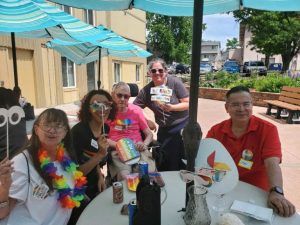
Dayspring Villa assisted living in Denver, CO
Our community culture is now one of inclusiveness. Barriers have been broken down and people are truly accepting of one another. Life enrichment programs and dining venues are spread throughout the campus and are enjoyed by all. True relationships, rather than paternalistic visits to the “poor old souls” in the nursing home, flourish. As our Director of Community Life puts it, “once people started knowing each other as human beings, they stopped defining each other by their disabilities.”
The Business Case for Inclusivity in Senior Living
Believe it or not, this culture is highly marketable and very attractive to the coveted “younger, active senior.” We are currently at an enviable occupancy level of over 99%. People want to be a part of an inclusive culture. It just feels right.
Ableism: The Connection to Age-Based Discrimination
As a community, we’ve been studying ageism and ableism and have discovered just how powerful and dangerous this type of discrimination and prejudice is. It destroys self-esteem, creates a negative culture, and can even shorten people’s life spans.
We consider it to be no more acceptable than racism or sexism and communicate that fact clearly with people when they join our community. The inclusive culture is now self-perpetuating. Folks who live here take great pride in our inclusivity and educate each other when someone says or does something that could marginalize or ostracize another elder.
In 2014, my colleagues from the LeadingAge Leadership Academy and myself spent a year focusing on and studying inclusive cultures in senior living settings. While there are communities that are still losing the battle against ageism, we found many shining examples of communities that are working to change the status quo. More information can be found in our white paper, Creating Inclusivity in Aging Services.
Negative press about our field of work can be very discouraging and painful. However, rather than becoming angry with the media or searching for ways to defend our practices, I believe it’s time for each of us as leaders to re-evaluate our own long-held truths about retirement communities. The battle against ageism is not an easy one but if we work together and begin to build a strong arsenal of knowledge we will be on the path to creating senior living environments that embody the true meaning of the word “community.”
By Jill Vitale-Aussem, former executive director at Clermont Park Retirement Community in Denver, CO and a consultant for Christian Living Services. Now CEO & President of Christian Living Communities
This article also appeared on McKnight’s.
Photo by Edwin Torres, Creative Commons licensed, from Flickr.
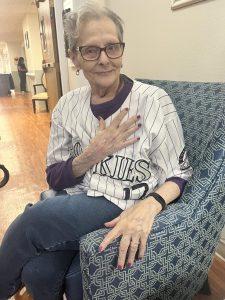
Ableism, often confused with ageism, is just as strong an enemy and is built up from society’s stereotypes and stigmas around one’s “ideal abilities.” The challenges that are targeted in this prejudice can include mobility, cognition, hearing, vision, independent living, and self-care. Ableist actions such as segregation and false assumptions have profound consequences, and even more far-reaching in a concentrated retirement community. A co-written article by Dr. Amy Dore, CLC Board Chair and Metropolitan State University Professor and Maddy Chapman, Associate Executive Director of Holly Creek, reports that in Colorado, 1 in 5 adults have a disability and statewide healthcare costs reach $12 billion per year. Despite the prominence of disability, ableism exists because many disabilities cannot be seen. Therefore, the impacts of ableism can result in depression, obesity, smoking, diabetes and heart disease in older adults. For retirement communities as a whole, abelism’s greatest achievement is the breeding of exclusivity and isolation.
Attribute to by Dr. Amy Dore, CLC Board Chair, Metropolitan State University Professor Maddy Chapman, Associate Executive Director, Holly Creek
